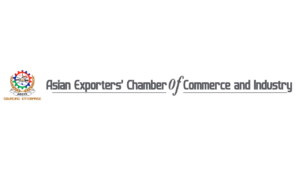Exporting businesses in the UK only have weeks remaining to get up to speed with new Rules of Origin procedures if they are to continue tariff-free trade with the EU.
Whilst there are variations, the majority rule to class a product as being of UK origin is that it is made from around 50% British or EU-sourced content, and the tariff-free access this delivers is the same for both UK firms exporting into the EU, and EU businesses exporting into the UK.
Businesses have so far been afforded a grace period to come to terms with the new trading arrangement. But from January 2022, all businesses will have to be able to demonstrate that they are compliant.
If they can’t, whether through lack of preparedness or exported products being less than 50% UK or EU-based, they will face duties. And many businesses are reportedly underprepared and unaware of just how much evidence they’ll have to provide in order to gain tariff-free access.
One trade expert from the Centre of European Reform noted that, if the EU was to step up enforcement in this area, the lack of preparedness from UK businesses could in essence become a way of the EU enforcing tariffs on the vast majority of UK exports.
Whilst larger organisations may have had more manpower to get to grips with the 50 pages outlining how Rules of Origin will work under the new trading arrangement, the fear is that smaller firms for which importing and exporting activity is maybe a smaller part of their operations, internal resource is simply not available to get to grips with the rules or find ways to comply with them. This, in turn, may put many SMEs off exporting altogether.
One study by The Guardian found one in four SMEs have already stopped exports to the EU due to increased costs as it is.
And this is against the backdrop of the ongoing fallout from the pandemic, plus the driver shortages in the UK.
Andrew Howie, managing partner at Grant Thornton LLP in Scotland said of the current situation facing companies: “Businesses have been on a roller-coaster ride of relief at the release from lockdown and the success of the vaccination programme, while constantly being buffeted by inflationary pressures and supply chain problems. In a just-in-time international economy, any issues with logistics can obviously escalate quickly. This winter is likely to test once again the resilience of business plans and contingency measures.
Read more: Complex Rules of Origin add £600m to duty costs
“It’s a very challenging scenario. We have seen examples at docks where container turnaround time is slower due to additional Brexit regulations and container pick up is slower due to a lack of drivers. It really is creating a perfect storm and the combination of the two is exacerbating delays and having substantial knock-on effects further down the supply chain.
“There is also the potential for things to get worse for businesses before they get better. Many businesses may not be aware that they are currently benefitting from a range of phased Brexit implementations measures, including grace periods around rules of origin. With this set to change from 2022, when further border measures come into force, businesses need to ensure that they are prepared and ready, to avoid a shock and even further disruption.”
Get up to speed with our free guide and workbook
The Rules of Origin in the new trade agreement between the UK and EU are complicated and vary for many products. Working out the origin of your products can be complicated and confusing with several competing rules.
We’ve created a free and comprehensive guide and workbook for UK businesses with a step-by-step process on how to work out the origin of your products.









